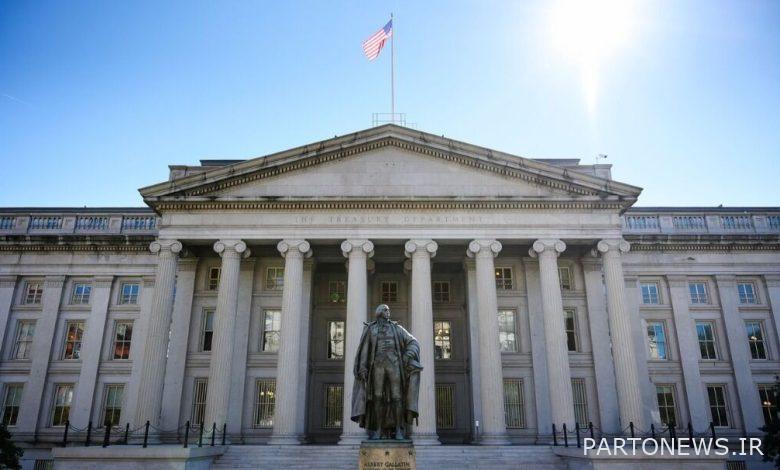On the eve of the resumption of the Vienna talks, new US sanctions against 4 individuals and 2 entities

The US Treasury Department on Friday added the names of four individuals and two companies in the Iranian cities of Isfahan and Qom, as well as an Omani tanker with a Liberian flag, to the sanctions list of the US Treasury Department’s Office of Foreign Assets Control.
The sanctions come as Iran announces its readiness to start talks with the P5 + 1, and the United States is stepping up sanctions despite claiming interest in returning to talks.
Kimia Part Sivan Limited Liability Company and Ouj Pardaz Ma Dovar are two entities that have been added to the US sanctions list.
Yousef Aboutalebi, Saeed Aghajani, Abdullah Mehrabi, Mohammad Ebrahim Zargar Tehrani are also four people who have been added to the US Treasury Department’s sanctions list.
Reiterating US projections and rhetoric against Iran over Iran’s regional influence, the US Deputy Treasury Secretary has claimed that these individuals and entities have been sanctioned for supporting Iran’s drone programs and threatening US interests.
New sanctions are being imposed by the Treasury Department of Joe Biden’s Democratic government, while on Wednesday Iran announced the resumption of talks with the P5 + 1 members, despite the atmosphere.
The sanctions come as Biden’s Democratic administration, which has been critical of former President Donald Trump’s departure from the UN Security Council, has not yet taken any serious steps to return to its commitments, despite six rounds of talks in Vienna. It paves the way for diplomacy with Iran, but also continues the same failed policies of the Trump administration.
Biden government officials have repeatedly acknowledged the failure of the policy of maximum pressure against the Islamic Republic of Iran, but in practice follow the same policies because sanctions on US policy have always been a means to further its unilateral goals.
In fact, the United States uses its domestic laws, including counterterrorism and corruption laws, to expand its dominance and influence in the world, and to use them against any country, party, movement, or individual that does not follow their policies. Does not agree with their plans and policies, uses.
After months of reviewing the sanctions system, the US Treasury Department in the Biden administration released a report showing that, like its predecessors, it saw sanctions as a tool to advance what it called the US national interest, and sought to modernize it.
According to Reuters, the US Treasury Department on October 17 issued recommendations to improve the use of economic sanctions and make it a more effective tool in US foreign policy.
Hill’s website recently reported that sanctions against individuals and other countries as a tool of US foreign policy have increased tenfold over the past two decades.
According to IRNA, according to statistics provided by Hill, the sanctions imposed by the US Treasury Department in 37 separate programs against individuals and countries have increased from 912 sanctions in 2000 to 9,421 sanctions in 2021.
According to the report, this statistic is only about sanctions imposed by the US Treasury Department and has nothing to do with sanctions imposed by other US government agencies such as the State Department, the Department of Commerce and the Department of Justice and Homeland Security.
Under U.S. law, in addition to the Treasury Department, the State Department can name a foreign organization as a terrorist group or, in its annual human rights reports, name a government as a sponsor of the terrorist state and set the stage for various sanctions. Provide.
According to Hill, the US government could even exert pressure on the UN Security Council or the European Union against other countries, such as North Korea and Iran, over its nuclear program, which is not included in the figures. .
The Wall Street Journal recently reported that previous administrations’ excessive use of sanctions and their ineffectiveness have led to a review of the policy, but US Treasury officials said after a nine-month review that sanctions remain in place. Important tools in American politics will remain to be optimized.
Meanwhile, Ali Bagheri Kani, Deputy Foreign Minister for Political Affairs, said on Wednesday after meeting with Enrique Mora, Deputy Secretary General of the European External Action Service and Coordinator of the Joint Commission in Brussels: “A serious and constructive dialogue on the necessary elements.” I had successful negotiations and we agreed to start negotiations by the end of November (December 29), the exact date will be announced next week.
The Political Deputy Minister of Foreign Affairs of Iran stated that the guarantee for not repeating the misconduct and illegal behavior of the opposing parties is an inescapable demand of the Islamic Republic of Iran.
During the meeting, Iran’s nuclear negotiator stressed the need for years of experience in the implementation and eventual unilateral and illegal withdrawal of the United States from the UN Security Council and the inaction of European countries in fulfilling their commitments. Sanctions and the normalization of trade and economic relations with Iran are effective, and any agreement must meet Iran’s demands in this regard.
Bagheri considered the provision of guarantees for non-repetition of misconduct and illegal behavior of the other parties as an inescapable demand of Iran.
.

